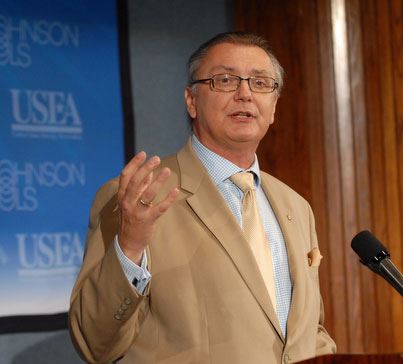 Retired, Deloitte
Retired, Deloitte
Affiliation and years of experience in energy and/or environment:
As reluctant as I am to admit it, I have over four decades of experience in the energy/environment professions. I started in the public utility valuation, depreciation and rates areas and later held positions in regulation at the state and federal levels and as both a consulting and utility executive. Last year I retired from Deloitte and have now ventured on my own in consulting. Nothing in my career was planned, just that one position led to another opportunity which led to another. While my university degree was in “Energy Conversion Engineering” from the University of Wisconsin – Milwaukee my first professional job at the American Appraisal Company was based on a single 3 credit course in “Public Utility Economics” taken as a junior in nuclear engineering at the University of Wisconsin – Madison. It was the only economics course I ever took. I still have the textbook and use it on occasion.
Any particular achievement/interest in energy/environment you would like to mention?
Looking back I am proud of the fact that I was the first one to hold the title of “Environmental Engineer” at the Wisconsin Electric Power Company in 1973. The job mostly consisted of monitoring work by contract consultants working on the Clean Water Act of 1972 but I understood that energy and environment, always linked in the past, would become even more so in the future.
In regulation my main achievements were, at the state level as a Wisconsin PSC Commissioner, in the processing successfully of numerous electric and natural gas rate cases of the early 1980’s. With double digit inflation and double digit interest rates, following the first Arab oil embargo, rate increase applications were “fast and furious.” The applications came fast and the public was furious. I survived long enough to vote on rate decreases in the later part of that decade. As A Commissioner at the FERC in 1992 my colleagues and I restructured the natural gas pipeline industry with Order 636. This order, which “unbundled” gas sales from gas transportation, resulted in a more efficient and healthy natural gas pipeline industry. It was a great decision.
In your opinion, what are important economic/policy issues facing the energy industry nowadays?
Globally, society, including governments and the energy industry, still must bring electrical service to 1.4 billion of the world’s citizens and relieve 3.5 billion citizens of the daily burden of collecting wood and scrap biomass for daily fuel. Only 2 billion of seven billion people on earth today have reliable, affordable and secure energy services. Here in the USA, we still have issues concerning the design of wholesale electricity markets, compensatory retail rates, and rules and new distribution and transmission technologies for the accommodation of more intermittent renewable energy into the supply mix.
How long have you been a member of NCAC? Any particular NCAC memory you would like to share with us?
I have been a member the past dozen or so years and I wish I had joined sooner. My most memorable experience was the overnight trip to the first oil fields in Pennsylvania a few years ago. It was educational, intellectually stimulating and great fun as I got to know more of my NCAC colleagues on a personal basis.
I have encouraged my colleagues at Deloitte as well as other professionals to join the NCAC because of the quality of the both the monthly luncheon programs and the membership. NCAC luncheons are a wonderful way to learn, expand one’s contacts in energy and make wonderful friendships. Can’t beat that, in my opinion.